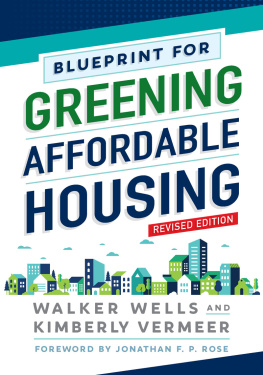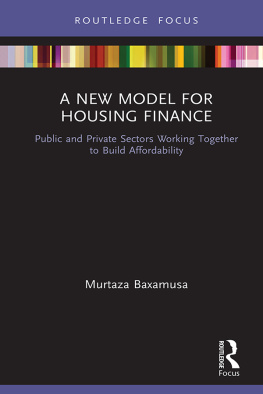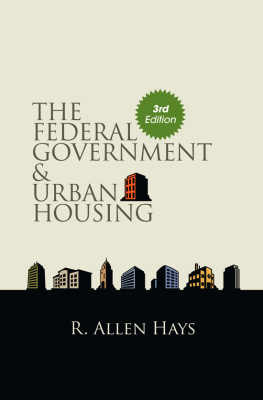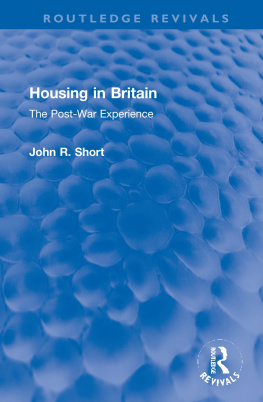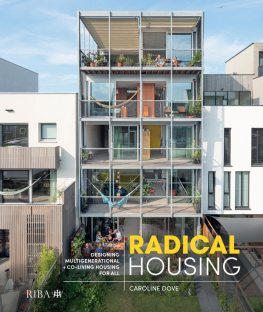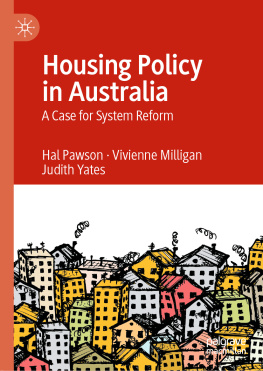
Affordable Housing Preservation in Washington, DC
Affordable Housing Preservation in Washington, DC uses the case of Washington, DC to examine the past, present, and future of subsidized and unsubsidized affordable housing through the lenses of history, governance, and affordable housing policy and planning.
Affordable housing policy in the US has often been focused at the federal level where the laws and funding to build new affordable housing historically have been determined. However, as federal housing subsidies from the 1960s expire and federal funding continues to decline, local governments, tenants and advocates face the difficult challenge of trying to retain affordability amid increasing demand for housing in many American cities. Now, instead of amassing land, financing and sponsors, affordable housing stakeholders must understand the existing resident needs and have access to the market for affordable housing.
Arguing for preservation as a way of acknowledging a basic right to the city, this book examines the ways that the broad range of stakeholders engage at the building and city levels. This book identifies the underlying challenges that enable or constrain preservation to demonstrate that effective preservation requires long-term relationships that engage residents, build trust and demonstrate a willingness to share power among residents, advocates, and the government. It is of great interest to academics and students as well as policy makers and practitioners internationally in the fields of housing studies and policy, urban studies, social policy, sociology and political economy.
Kathryn Howell is an assistant professor of Urban Planning at Virginia Commonwealth University and is the co-director of the RVA Eviction Lab. She investigates ways to interrupt ongoing patterns of migration, displacement and segregation in cities. She focuses specifically on affordable housing and public spaces to explore redevelopment, displacement and governance. Over the past decade she has looked at the preservation of affordable housing in Washington, DC, examining the intersection between policies, governance and the built environment. Most recently, she has partnered with community-based and policy advocacy organizations to collect and analyze eviction data to address housing instability and ongoing displacement in communities of color in Richmond. Before earning her PhD, Dr. Howell was a practitioner in local government, developing housing and community development policy in Washington, DC and Maryland agencies.
Explorations in Housing Studies
Series editors:
Janet Smith, University of Illinois, Chicago
Keith Jacobs, University of Tasmania, Tasmania
Mark Stephens, University of Glasgow
Explorations in Housing Studies is a series of high quality, research monographs which aims to extend and deepen both theoretical debate and empirical research in the housing studies field. The series is being introduced at a time when housing, in its various dimensions, is particularly closely intertwined with the impact of demographic change, economic instability, the shaping of life chances and wealth distributions and with the uncertain impacts of environmental and technological change. This series aims to engage with these and related issues from a variety of perspectives and methodologies.
Housing in Post-Growth Society
Japan On the Edge of Transition
Yosuke Hirayama and Misa Izuhara
Neoliberal Housing Policy
An International Perspective
Keith Jacobs
Housing, Neoliberalism and the Archive
Reinterpreting the Rise and Fall of Public Housing
Kathleen Flanagan
Evictions in the UK
Power, Housing, and Politics
Joe Crawford
Affordable Housing Preservation in Washington, DC
A Framework for Local Funding, Collaborative Governance, and Community Organizing for Change
Kathryn Howell
First published 2021
by Routledge
52 Vanderbilt Avenue, New York, NY 10017
and by Routledge
2 Park Square, Milton Park, Abingdon, Oxon OX14 4RN
Routledge is an imprint of the Taylor & Francis Group, an informa business
2021 Taylor & Francis
The right of Kathryn Howell to be identified as author of this work has been asserted by her in accordance with sections 77 and 78 of the Copyright, Designs and Patents Act 1988.
All rights reserved. No part of this book may be reprinted or reproduced or utilised in any form or by any electronic, mechanical, or other means, now known or hereafter invented, including photocopying and recording, or in any information storage or retrieval system, without permission in writing from the publishers.
Trademark notice: Product or corporate names may be trademarks or registered trademarks, and are used only for identification and explanation without intent to infringe.
Library of Congress Cataloging-in-Publication Data
Names: Howell, Kathryn, author.
Title: Affordable housing preservation in Washington, DC : a framework for local funding, collaborative governance, and community organizing for change / Kathryn Howell.
Description: New York, NY : Routledge, 2021. | Includes bibliographical references and index.Identifiers: LCCN 2020052006 (print) | LCCN 2020052007 (ebook) | ISBN 9780367333096 (hardback) | ISBN 9780429319129 (ebook)
Subjects: LCSH: Housing rehabilitation--Washington (D.C.) | Housing rehabilitation--Finance. | Housing policy--Washington (D.C.) Classification: LCC HD7304.W3 H69 2021 (print) | LCC HD7304.W3 (ebook) | DDC 363.5/83--dc23
LC record available at https://lccn.loc.gov/2020052006
LC ebook record available at https://lccn.loc.gov/2020052007
ISBN: 978-0-367-33309-6 (hbk)
ISBN: 978-0-367-77180-5 (pbk)
ISBN: 978-0-429-31912-9 (ebk)
To my parents Eric and Rhoda who never stop learning.
Washington, DC has a rich history of tenant-based housing policy that is visible in the policies actively used, the culture of advocacy and organizing, and the buildings that line some of the citys most highly gentrified corridors in neighborhoods like Shaw, Columbia Heights, H Street NE and Gallery Place/Chinatown. My work in both government and academia have given me a window through which to view this history. I walk or bike around the city, and as I do, I have the stories of almost 200 affordable buildings in my head. I see a building, and I remember that it was built in the early 20th century for wealthy white residents, it was first preserved in the 1970s after the African American families who had been living in poor conditions staged a rent strike, or it is owned by a group of Salvadoran and Guatemalan immigrants who bought it in the 1990s. There are few neighborhoods where I cannot talk about the history of affordable housing specific buildings, zoning decisions, rent strikes, buildings that have been demolished, buildings that have been converted, buildings where low- and moderate-income communities have come together to resist and buildings where bad actors have exploited tenants. It is a part of DC history and present that are almost impossible to untangle.
Learning that history has helped me to understand the national picture for affordable housing and the nuances of federal policy. It has also helped me understand the conflicts and commonalities in a city that has been changing since it was built. The District has become a leader in the preservation of affordable housing at the same time that it has been tagged as one of the fastest gentrifying cities in the country. After spending the past 13 years working with organizers, tenants, city government, lenders, developers and policy advocates to develop policy and understand the challenges, I have learned a lot about the relationships between different places where planning and policy-making happen, specifically community, advocacy and government. Preservation engages all three of those arenas for a simple reason: people live there, the building has been in place for at least a couple of decades and affordable housing finance is never done in a vacuum.


